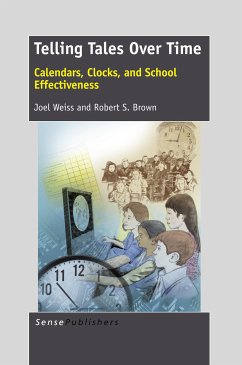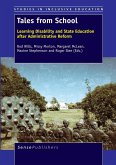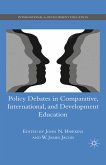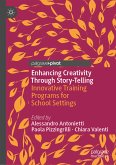How do calendars and clocks influence considerations of school effectiveness? From the creation of compulsory education to the future of virtual schooling, Weiss and Brown trace two centuries of school practices, policies and research linking the concept of time with 'opportunity to learn'. School calendars and clocks are shaped by both the physical and social worlds, and the 'clock of schooling' is shown to be one of the 'great clocks of society' that helps to frame school effectiveness. School time does not operate in a vacuum, but within curriculum, teaching and learning situations. The phrase 'chrono-curriculum' was devised by the authors as a metaphor for exploring issues of school effectiveness within the time dimension. Using American and Canadian sources, stories are created to illustrate four themes about time and school effectiveness. The first three stories utilize access, attendance and testing as criteria associated with these eras of schooling. How will the story read in the fourth era, the digital age, which forces us to a reconsideration of time and its influence on education? Quoting David Berliner in his Foreword: " this is an opportune time for these authors to bring us insights into the reasons we in North America created our public school systems, and how the chrono-curriculum influences those systems. The authors' presentation of our educational past provides educators a chance to think anew about how we might do schooling in our own times."
Dieser Download kann aus rechtlichen Gründen nur mit Rechnungsadresse in A, B, BG, CY, CZ, D, DK, EW, E, FIN, F, GR, HR, H, IRL, I, LT, L, LR, M, NL, PL, P, R, S, SLO, SK ausgeliefert werden.









